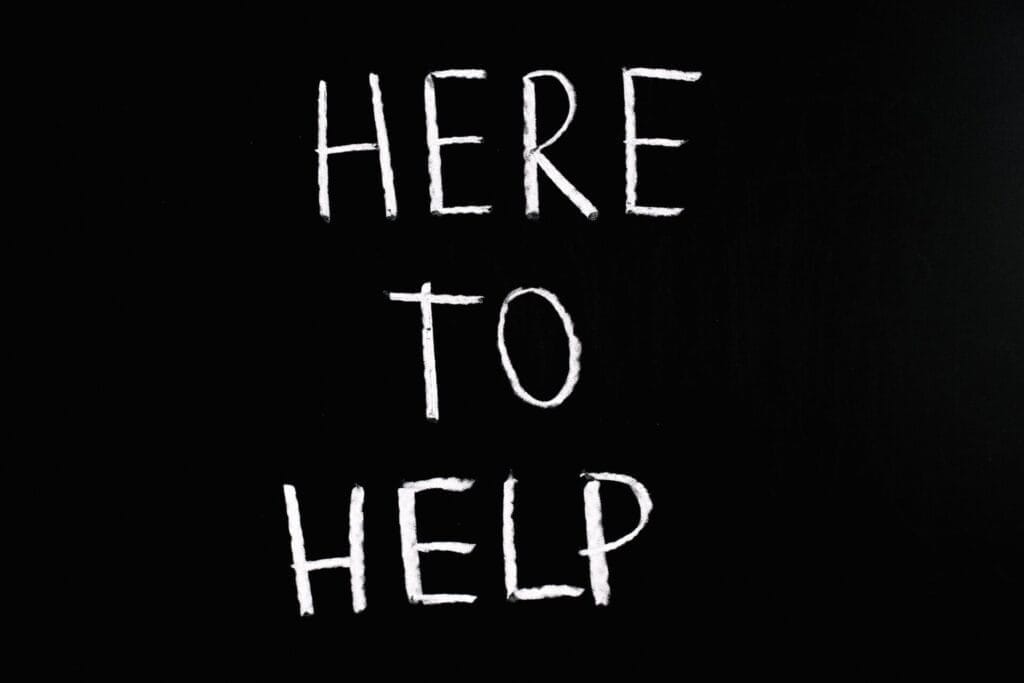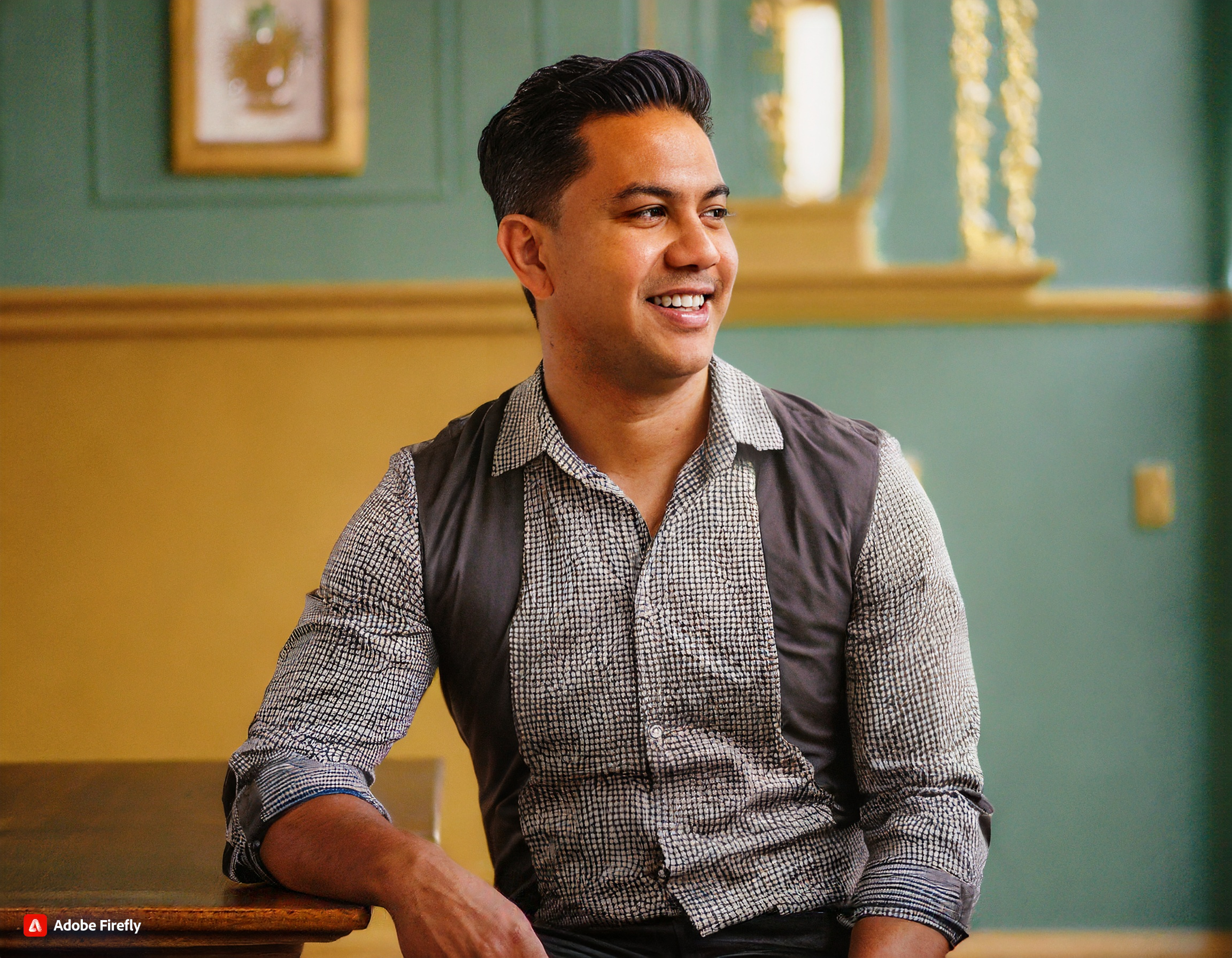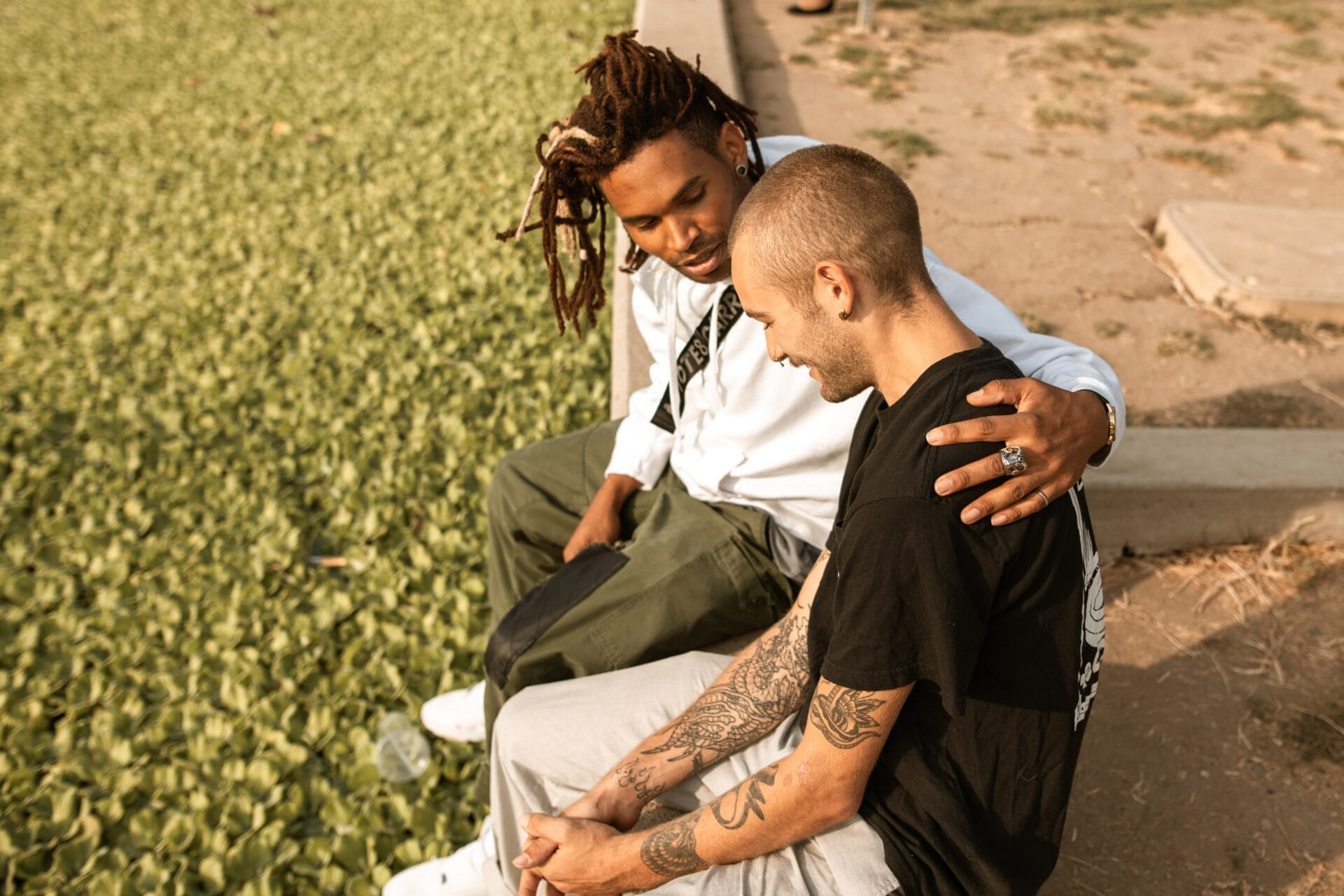Introduction
Imagine a moment of vulnerability, while someone you care approximately takes a deep breath, gathers their braveness, and makes a decision to proportion a profound part of their identification with you. The room becomes charged with emotions as they say the terms, “I’m LGBTQ,” or possibly, “I’m popping out.” In that pivotal moment, the power of your reaction is immeasurable. It can both improve the bonds of acceptance as true and love or inadvertently inflict wounds that take time to heal. So in this guide, we will learn Things not to Say to Someone Who Just Came Out.
In this blog, we embark on a journey through the intricacies of navigating conversations with someone who has simply come out. We’ll explore the depth of the approaching enjoy, delve into the effect of the words we pick out, and provide insights into the dos and don’ts of offering support and know-how.
Our purpose is straightforward but profound: to equip you with the know-how and empathy needed to make this crucial second certainly one of reputation, love, and harmony. Together, allow’s learn how to be allies, advocates, and pals in the truest experience as we have a good time with the diversity of the human enjoy.
So, let’s begin this voyage together, where phrases become bridges, and understanding turns into the cornerstone of deeper connections.
Key Takeaways:
- Understanding the Coming Out Experience: You’ll gain insights into the emotional and mental journey of a person who comes out, appreciating the braveness and vulnerability it includes.
- Empowering Communication: Discover the dos and don’ts of what to say whilst a person comes out. Learn how to provide aid, empathy, and love, whilst warding off hurtful comments.
- Impact of Words: Recognize the electricity of your words in shaping relationships. Understand how well-intentioned feedback can on occasion have unintended results.
- Becoming an Ally: Explore the critical function of allies within the LGBTQ network and find guidance on how to be a source of energy for your loved ones.
- Educating Yourself: Access resources to teach yourself about LGBTQ troubles, fostering a greater inclusive and knowledgeable angle.
- Personal Stories: Through real-existence studies, gain a deeper knowledge of the profound impact of supportive as opposed to insensitive reactions when someone comes out.
- Apology and Learning: Learn the importance of apologizing and growing from mistakes if you’ve ever said something hurtful, mending relationships with genuine understanding.
- Creating a More Inclusive World: Be encouraged to carefully pick your words, engage in open and honest dialogues, and actively contribute to a world that values variety and inclusion.
This narrative will offer valuable understanding, attitude, and the essential gear for this kind of journey. It’s a guide to nurturing deeper connections and fostering an environment of affection, recognition, and team spirit.

The Coming Out Experience
Exploring Emotions
The adventure of Coming Out is a rollercoaster of feelings. For many LGBTQ individuals, it’s liberating and tension-inducing. The weight of concealing one’s actual self can be burdensome, and as they decide to open up, there’s frequently a mixture of worry, excitement, and uncertainty.
Courage and Vulnerability
Coming Out is an act of extremely good braveness. It’s like entering into the unknown and sharing one’s proper self with others. The vulnerability that incorporates revealing your real identification needs to no longer be underestimated.
Discrimination and Rejection
Unfortunately, discrimination and rejection remain prevalent issues. LGBTQ+ individuals can face bias from society, friends, and family. Shocking information and personal anecdotes remind us of the demanding situations many nonetheless face.
The Power of Words
Impact of Words
Words are powerful tools that can assemble bridges or tear them down. When a person comes out, the terms spoken to them can have a profound impact. They are sharing something deeply private, and the response they open up to can shape their self-picture and self-worth.
Vulnerability
The moment someone comes out is a particularly vulnerable one. They are sharing something deeply personal, and the reaction of those they confide in can shape their self-image and self-worth.
Well-Intentioned Yet Hurtful Comments
Sometimes, properly-which means people inadvertently purpose ache with their words. It’s crucial to be aware of phrases like, “Are you sure?”, “It’s just a phase,” and “I knew it all alongside.” These comments, even though intended kindly, can undermine the braveness it took to pop out.
Common Missteps to Avoid
“Are you sure?”
Doubting someone’s declaration can be invalidating. Instead of questioning their truth, provide aid and reassurance. Let them know you’re there for them, no matter the adventure ahead.
“It’s only a section.”
This dismissive phrase belittles someone’s identity and experiences. Understand that one’s sexual orientation or gender identity is valid and enduring, not a fleeting phase.
“I knew it all along.”
Assuming that you knew their identity before they came out can make them feel as if they were hiding something from you. Instead, express appreciation for their trust in confiding in you.
Remember, the journey of Coming Out is unique for each individual. What they need most is acceptance, understanding, and support.
What to Do and Not Do
Emphasize the importance of providing love and support.
By really supporting and loving others around us, we have a brilliant impact on their existence. Acknowledging someone’s feelings, reports, and views can be quite empowering. By lending a compassionate ear and providing a kind phrase, we can create a secure space for people to explicit themselves and find solace in our presence. In essence, demonstrating help and love is a cornerstone of fostering effective relationships.
Pro Tip: Start your day by way of making an effort to show guidance and love. A simple “I accept as true within you” or “I’m right here for you” can go an extended way in brightening a person’s day.
Provide Examples of Positive and Supportive Statements
Practical examples can be precious in understanding the way to speak effectively. When we talk kindly and encouragingly, we uplift individuals and create an environment where they experience desirable.
Consider expressing your happiness for them, your admiration for them, and your availability to assist them. These easy expressions of encouragement may be an effective pressure for the top in someone’s lifestyle.
Pro Tip: Keep a list of effective statements on hand to remind yourself to use them daily.
Highlight the Significance of Listening and Being Empathetic
Listening is a regularly underestimated ability in verbal exchange. It includes now not just hearing phrases but without a doubt knowledge of the emotions and perspectives behind them.
Being empathetic means placing yourself in a person else’s footwear, appreciating their feelings, and displaying kindness. By training in active listening and empathy, we can make others experience heard, understood, and valued.
Pro Tip: Practice lively listening with the aid of keeping eye touch, nodding, and asking open-ended questions that inspire the opposite individual to share more.

The Don’ts: Avoiding Hurtful Communication
1. Invalidating Statements
Saying such things as “It’s just a section” or “You’ll change your mind” may be distinctly hurtful to someone expressing their mind or feelings. These terms brush aside the validity of their emotions and undermine their self-assurance. It’s essential to avoid such invalidating statements and instead provide an open and supportive space for individuals to express themselves.
2. Religious Judgments
Respecting diverse beliefs is an essential aspect of a harmonious society. Making religious judgments can be offensive and alienating. Instead, we should embrace the diversity of belief systems and engage in open dialogues that encourage understanding and tolerance.
4. Invasive Questions
Asking overly personal questions can be invasive and disrespectful. Respect for personal boundaries is fundamental in any interaction. Before delving into deeply personal topics, always try to find consent and make certain the other person feels snug discussing such topics.
Empathy and Support
Stress the Importance of Empathy and Understanding
Empathy is the capability to apprehend and percentage the feelings of some other. It’s vital inside the context of coming out because it permits people to feel heard and ordinary. For a person to muster the braveness to reveal their true self, they need steady and supportive surroundings.
Empathy isn’t only a passive acknowledgment of a person’s feelings; it’s an energetic effort to put oneself out of their footwear. When someone comes out, it’s an opportunity to illustrate empathy with the useful resource of showing that their feelings are counted. This is the time to be gifted, pay attention actively, and respond with kindness.
Provide Alternative Responses that Convey Support and Love
When a cherished one comes out, your response could make a world of difference. Here are some alternative responses that now not simplest show help but also bring love and reputation:
- “Thank you for trusting me with this.” Expressing gratitude for their trust acknowledges the courage it took to come out. It reinforces their decision to open up.
- “I’m right here for you irrespective of what.” This response reassures them that your assistance is unwavering, regardless of their sexual orientation or gender identification.
- “I admire you for sharing this with me.” This statement conveys a sense of appreciation for their vulnerability, making them feel valued and understood.
| Key Tips for Being Supportive: |
|---|
| “Be their biggest cheerleader” |
| “Listen without judgment” |
| “Ask respectful questions” |
| “Respect privacy and boundaries” |
| “Recognize individual journeys” |
| “Allow them to come out at their own pace” |
| “Be an LGBTQ+ ally beyond Pride Month” |
The Impact of Hurtful Words
Talk about the Psychological and Emotional Effects
A person who has come out might suffer severe emotional and psychological stress if they are subjected to cruel comments. Their self-worth may be questioned, and it may damage their self-esteem. Because it frequently comes from individuals they care about profoundly, the impact is extremely devastating.
It’s crucial to understand that being unkind may cause individuals to feel incredibly depressed, anxious, and occasionally even tempted to harm themselves. Speaking carefully is important because what we say can either comfort our loved ones or cause them great distress.
Share Personal Stories or Examples
To emphasize the gravity of the issue, we can share personal stories or examples of how hurtful words affected individuals who came out. These narratives can serve as cautionary tales, illustrating the real-life consequences of insensitivity.
The Role of Allies
Allies are exceptionally crucial within the LGBTQ community. They’re like the pals, family, and coworkers of LGBTQ individuals who assist and stand by them. This part will communicate why allies remember and supply guidelines on being a very good best friend.
Highlight the Importance of Allies
Allies are the bridge between the LGBTQ network and the wider society. They provide essential aid and advocacy, developing a more inclusive and know-how international. Without allies, the adventure closer to popularity and equality might be a ways extra difficult.
Being an ally method of actively supporting and advocating for LGBTQ people. It’s approximately listening, instructing yourself, and standing up against discrimination and prejudice.
Provide Tips for Allies
- Listen and Learn: Being a supportive ally starts offevolved with the capability to concentrate and research. Learn approximately LGBTQ vocabulary, subjects, and difficulties.
- Be Vocal: Stand up in opposition to discrimination and hate. Use your voice to assist and endorse LGBTQ rights.
- Respect Pronouns and Identities: Always use the proper pronouns and recognize people’s selected names and identities.
- Create Safe Spaces: Make your surroundings, whether or not at domestic, paintings, or in social circles, a safe one for LGBTQ people.

Acknowledging Personal Journeys
Each individual’s coming out journey is specific and needs to be acknowledged and respected, heading off comparisons or assumptions based on stereotypes. It’s important to create a welcoming environment wherein humans can be themselves. Let’s discuss a few vital issues to hold in thoughts while you assist someone who has these days found out their authentic self to you:
- Listen with Empathy and Understanding: Take the time to actively pay attention to your friend’s reports and emotions without judgment. Create an environment in which humans feel heard and acknowledged, permitting them to share their tales on their phrases.
- Show Acceptance and Support: Be a rock of encouragement for your friend and well know their popularity. Offer type and encouraging words, permitting them to recognize that you are there for them unconditionally.
- Respect Privacy and Boundaries: It is crucial to recognize your pal’s privacy and limitations. Do no longer divulge their orientation or gender identification without their consent. Use gender-impartial language and keep away from making assumptions or labeling them.
- Avoid Making Comparisons: Recognize that no two coming-out reports are identical. Avoid comparing their adventure to others or making assumptions based on stereotypes. Each man or woman’s story is their personal, and it merits to be valued and respected.
Table: Supporting someone who just came out
| Do’s | Avoid |
|---|---|
| Listen attentively without judgment | Making personal or intrusive questions |
| Show acceptance and support | Pushing personal beliefs or agenda |
| Respect privacy and boundaries | Comparing experiences or making assumptions |
| Encourage and celebrate their self-acceptance | Disclosing their orientation without consent |
“Each person’s adventure is different, and we must honor and respect that distinctiveness. Supporting someone who has just come out calls for authentic empathy, lively listening, and dedication to their emotional well-being. Let us create a global where all of us are widely known for who they may be.”
By spotting and respecting the individuality of each coming-out adventure, we can create a lifestyle of inclusivity, support, and reputation. Remember to offer a safe space, show empathy, have a good time in their self-discovery, and honor their privateness. Supporting someone who simply came out is an ongoing manner that requires information, compassion, and a commitment to increase.
Being there in your pal way being a regular best friend, now not best in the course of Pride Month but at some stage in the 12 months. Educate yourself, take part in LGBTQ activities, and actively paintings towards growing an environment in which absolutely everyone feels seen, heard, and cherished.
Personal Stories
Real-Life Experiences of Coming Out
Understanding the coming-out process is essential. Let’s hear some real-life stories of individuals who have come out:
Emma’s Journey
Transgender lady Emma overcame her issues and revealed her identity to her circle of relatives. Though there have been difficulties alongside the manner, she became in a position to conquer them with the help of her friends and online LGBTQ networks. Emma’s tale reminds us of the courage it takes to embrace one’s identification.
Alex’s Story
Alex, a non-binary person, faced resistance from their circle of relatives after they came out. However, their tale takes a high-quality flip as they find popularity and assistance among their friends and nearby LGBTQ businesses. Alex’s story underscores the importance of surrounding oneself with a supportive network.
The Impact of Supportive vs. Insensitive Reactions
These non-public tales spotlight the important role that reactions play in an individual’s coming-out adventure. Supportive reactions lead to emotional well-being and self-popularity, at the same time as insensitive reactions may have lasting poor outcomes.
C. Humanizing the Experiences
To recognize LGBTQ problems, it’s critical to humanize the stories of LGBTQ human beings. Remember that they may be human beings with goals, aspirations, and demanding situations, just like each person else.

Apologizing and Learning
Mending Relationships
In the journey of LGBTQ+ awareness, we may stumble and say things unintentionally that hurt others. It’s vital to recognize the power of apologies and the opportunity to learn from our errors.
- The Art of Apologizing: When someone has stated something hurtful, it’s critical to make an apology genuinely. Acknowledge the effect of your phrases and explicit true remorse. A heartfelt apology can be the first step in mending relationships.
- Learning and Growing: Learning from our mistakes is equally vital. Errors are a natural part of our existence, but the depth of our evolution depends on our ability to learn from these mistakes. When we accept these teachings with discernment, our possibilities for development and the cultivation of our empathy quotient increase.
FAQs: Things Not to Say to Someone Who Just Came Out
How can we support a loved one who comes out as gay during Pride Month?
Supporting a loved one who comes out as queer during Pride Month involves showing empathy and understanding their journey of self-discovery in matters of sexuality. Ask about their emotional condition, their desire for open communication, and your ability to be an encouraging companion instead of using harsh words.
Remember that revealing one’s genuine self is a difficult road, so be patient and continually act in the capacity of a trusted confidante.
What are the seven things you should never say to someone who identifies as lesbian?
It’s critical to refrain from saying anything that might continue to feed negative preconceptions about someone who identifies as lesbian. Instead, ask them about their experiences and what they feel comfortable sharing. A coming out story is a very personal and emotional journey, so always be there to listen and provide affirmation.
In what ways can we be allies to someone who comes out as trans and faces lasting effects?
Being an ally to someone who comes out as trans and faces lasting effects requires understanding that their gender identity may change over time. Don’t question their decision to come out or change their gender presentation. Always ensure they feel supported and loved, no matter how their gender identity evolves.
Can you offer a cause of the acronym LGBTQ and its significance to a person who isn’t always familiar with it?
Understanding and explaining the LGBTQ acronym to someone surprising with it isn’t always a difficult organization. It acts as a broad umbrella, including many expressions of emotion and self-identification ranging from homosexuality and bisexuality to cisgender adherence and beyond.
It is critical to remember that everyone, regardless of sexual orientation, may easily offer their sympathies to the LGBTQIA community.
How can we ensure that we never say hurtful things to a gay man like Jess?
When interacting with a gay man like Jess, always steer clear of asking invasive questions about his sex life or making gendered role assumptions. Never say things like, “I knew you were gay” or “Are you sure you’re not just confused?” Instead, show support and let him share his experiences on his terms.
What are the lasting effects on someone’s mental health when we never say positive and affirming words to them in same-sex relationships?
The same-sex partners may face severe emotional scars and solitude as a result of our silence regarding encouraging or positive thoughts for them. Expressions like “I stand by your side” and “You’re not traversing this path unaccompanied” have the power to build a sense of acknowledgment and reinforcement in the individual’s heart when they make the daring decision to reveal their true selves.
Validation becomes essential. It’s important to understand that receiving affirmation doesn’t mean you’re trying to change who someone is at their core; rather, it means they already need your empathy and love.
When a friend comes out as part of the LGBTQ+ community, what are the six things you should not say to support them effectively?
There are a half-dozen expressions that are best avoided when a confidant discloses they are LGBTQ+ to show true support. Never use the phrase “Are you certain?”The individual who came out can start to question their own emotions. Second, avoid using the phrase “I knew it!” as it may suggest that their identification was clear. Third, avoid responding, “It’s not a big deal,” as this may minimize their anxious feeling.
Fourth, avoid using the phrase “I don’t get it; it’s like rocket science,” since this may make the other person feel as though you are making their identity appear unduly complicated. Fifth, avoid bringing up a subject that is unrelated to their current identity, such as “But what about your previous relationships?
Don’t say, “I wish conversation on this issue,” until you have my permission unless it is relevant to my current character. Instead, skillfully nudge the other in the direction of feeling your sympathetic presence and your readiness to listen intently.
How can we ask someone about their experiences in a way that respects their emotional journey when they’re coming out of the closet?
It might be sensitive to inquire about someone’s experiences while they are coming out of the closet. You should respect and assist them on their emotional journey. It’s vital to keep away from using the phrase “I knew it,” which shows that you were privy to their identity.
Instead, input the communication with empathy and open thoughts by mentioning, “Hi, I’m right here to listen if you need to talk.” By doing this, you may demonstrate your readiness to comprehend without making any assumptions.
In a world where pop culture has evolved, how can we avoid making the person coming out feel like they’re on the receiving end of judgment?
It’s critical to prevent the individual from coming out to feel criticized in a world where mainstream culture has evolved. Avoid responding, “Are you sure?” since this might cause them to doubt themselves. When you talk to others, try not to brush off their feelings casually by saying, “It doesn’t matter.”
Doing this isn’t fair to the depth of the moment you both are having. Instead, focus on showing how much you appreciate their trust and say, “Thank you for sharing with me.” This will make a caring environment and show that you value them.
For heterosexual individuals who may not have always known about LGBTQ+ issues, how can we show support without making them feel like they’re questioning the emotional journey of those who are coming out?
It’s crucial to offer support without interrogating the emotional path of persons who are coming out for heterosexual people who may not have always been aware of LGBTQ+ concerns. It can make their identity appear unnecessarily complicated to say, “I don’t get it; it’s like rocket science,” so refrain from saying that.
Instead, be sympathetic and ask them, “How can I be your ally and support you?” By not making it about your expertise or experience, you are demonstrating your desire to help and learn from others.
Conclusion: Things Not to Say to Someone Who Just Came Out
Respectful communique and support play an essential role when a person comes out, fostering empathy, understanding, and a caring environment for the LGBTQ network. When someone trusts you with their reality, reply with kindness, honesty, and positivity.
This is not the time to shift the attention onto yourself; alternatively, be a lively listener without judgment. Give them the gap to share their reports and emotions, developing a secure and supportive surrounding.
Asking respectful questions can show your aid, but it’s far crucial to avoid being intrusive or prying into their lifestyles. Focus on questions that exhibit your empathy and understanding, and recognize their obstacles. Be their biggest cheerleader, supplying unwavering aid and encouragement. Celebrate their self-recognition and adventure without pushing any private ideals or agenda onto them.
Respect their privacy and remember the language you operate. Refrain from labeling or making assumptions based on stereotypes. Acknowledge that everybody’s coming out journey is particular, and avoid comparing experiences. Tailor your support to their individual needs and experiences, respecting their timing to come out to others. Be a constant ally in their life, providing year-round support beyond Pride Month, and educate yourself about the struggles and challenges that LGBTQ+ individuals face.
In conclusion, you may foster a caring and welcoming atmosphere for your buddy who has come out by using polite communication, empathy, and understanding. Keep in mind that your duty as an ally is to fully support them, respect their path, and be there for them at every turn.

Michael Thompson is an experienced author and relationship advisor dedicated to helping individuals navigate the intricacies of human behavior and connection. Michael, who has a degree in communication studies and a flair for deciphering nonverbal clues, provides readers with unique perspectives and practical advice to help them on their quest to better and more rewarding relationships. Michael hopes that his insightful writing and loving assistance will lead to increased knowledge and personal progress for his readers.
